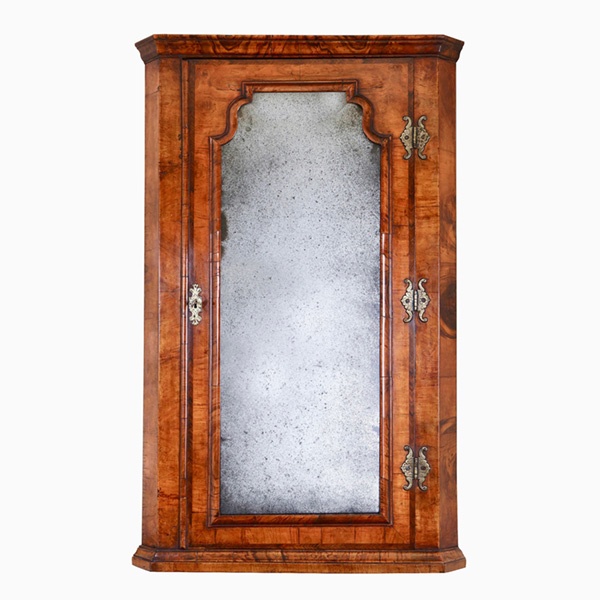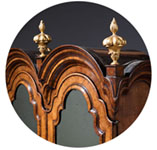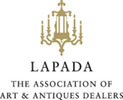17th century William and Mary Ebony Eight-Day table clock by James Markwick
Sold
Price Enquiry
Follow Us
17th century William and Mary Ebony Eight-Day table clock by James Markwick
The elegantly proportioned ebony-veneered basket top case has fine cast brass ornaments to the door and rectangular windows to the sides so that the exquisite movement is almost entirely visible. The case rests on four fire-gilt brass bun feet.
The fine square brass dial with matted centre and ringed winding holes has an applied silvered chapter-ring, a date aperture above the VI, a false pendulum aperture under the XII and gilded winged cherub-head spandrels in the corners. The chapter ring is engraved with a narrow outer minute ring within Arabic five-minute numerals and 7½-minute markers, a central ring of Roman hours I-XII and half-hour markers and an inner ring divided into quarter hours. The elegant blued steel hands are finely pierced. The dial is signed on a silvered plaque behind the false pendulum, Markwick Londini.
The striking eight-day twin fusee brass movement, of which one of the five pillars is latched, has early fusees with open click work and unusual steel securing caps, and verge escapement with a short knife-suspended pendulum. The striking, which is regulated by an internal rack, indicates the hours fully on a bell. The backplate is profusely engraved in period style around a typical signature cartouche with the maker’s name: Markwick Londini. The movement has pull-quarter repeat on six bells differing in pitch.
The maker
James Markwick (c.1662-1716) was apprenticed to Edmund Gilpin in 1656. He married his master’s daughter around 1660. He is recorded to be active as a clockmaker in Croydon between 1661 and 1664. He was free of the Clockmakers’ Company in 1666. After this date, he lived in Coleman Street in London. In 1673 he succeeded to the property of the well-known clockmaker Samuel Betts. He had several apprentices over the years, among them his son James. Several longcases, as well as watches of his, are known, but spring-driven table clocks are rare. His son James followed in his footsteps, who later joined up with Robert Markham to form the renowned business Markham Markwick.
It should be noted that this is a sensational clock by a great maker and in the most wonderful condition throughout.
Condition
Good. Wear consistent with age and use.
Dimensions
Height: 15.5 in. (39.37 cm)
Width: 10.25 in. (26.04 cm)
Depth: 6.5 in. (16.51 cm)
Literature
B. Loomes, The Clockmakers of Great Britain 1286-1700, Ashbourne, 2014, pp.488-89.
B. Loomes, The Early Clockmakers of Great Britain, Tiptree, 1981
PREVIOUSLY SOLD
No Results Found
The page you requested could not be found. Try refining your search, or use the navigation above to locate the post.
No Results Found
The page you requested could not be found. Try refining your search, or use the navigation above to locate the post.
YOU MAY ALSO LIKE

Queen Anne Walnut Corner Cupboard with Bevelled Mirror Plate
A truly remarkable find in original condition. To the door a shaped soft bevelled mirror plate is framed by a cross-grain molding of typical queen Anne design which is further cross-banded, feather-banded and edged to the opening with a single de-molding.

Queen Anne Walnut Corner Cupboard with Bevelled Mirror Plate
A truly remarkable find in original condition. To the door a shaped soft bevelled mirror plate is framed by a cross-grain molding of typical queen Anne design which is further cross-banded, feather-banded and edged to the opening with a single de-molding.










